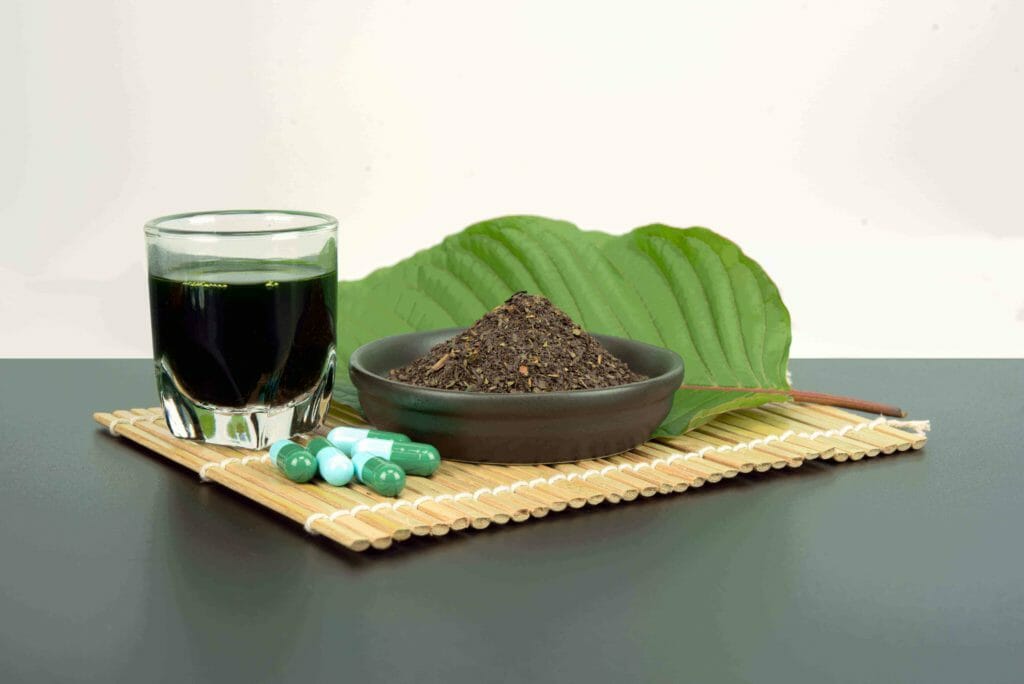Is Kratom Addictive?
 Interesting read and great sources of information – Taylor Brown, B.A.Com., MAADC II
Interesting read and great sources of information – Taylor Brown, B.A.Com., MAADC II
Kratom is an unregulated herb that delivers effects similar to those of opioids and stimulants. Because of its classification as an herb it is widely available in the U.S. However, there are serious concerns about the potential for kratom to lead to dependence or addiction. According to the National Institute on Drug Abuse (NIH), “compounds in kratom…interact with opioid receptors in the brain, producing sedation, pleasure, and decreased pain.” The NIH also warns, “kratom might cause dependence.” Both dependence and addiction have been reported by some kratom users.
Drug Dependence vs Addiction
Physical dependence can happen with any substance, including prescription drugs. Dependence means the body has adapted and changed due to the continued presence of the substance. If a substance like kratom has been used long-term, then stopped, withdrawal effects may result.
Addiction often starts with dependence but has moved into the compulsive need for a substance, no matter what the consequences. Users are often unable to stop using on their own.
Side Effects of Kratom Use
Any substance, legal or not, that causes dependence or addiction means there will likely be unpleasant, possibly serious, side effects when use stops. There are many side effects from kratom use and withdrawal, and while some are mild, some can be dangerous. Severe reactions to kratom use or discontinuation may include:
- Seizures
- Hallucinations
- Delusions
- Aggression
- Dangerously slowed breathing
- Increased heart rate and blood pressure
There have been deaths associated with kratom use. However, in most cases, other potentially harmful substances were also present, making it difficult to be sure kratom was the cause. The lack of scientific studies on kratom’s use, effectiveness, and safety, make it difficult to label it as dangerous or addictive.
What is kratom?
Kratom is a tropical evergreen tree that grows in Southeast Asia. Since the 1800s, traditional medical practitioners have recommended kratom to boost energy, manage pain, relieve depression, treat chronic cough and relieve intestinal distress. In early days the kratom leaf was chewed for its effect. Today kratom is also available as a pill, powder, capsule, tea, or in extract form. The leaves may also be smoked or eaten.
While kratom is currently legal in much of the U.S., including Missouri, it has been banned in 6 states and in some cities within otherwise legal states. Several additional states have pending legislation that may also prohibit kratom statewide.
Why have some states banned kratom?
Although there is anecdotal evidence that kratom may be effective for pain control and other uses, to date there have been no clinical trials to determine its effectiveness or safety. The Food and Drug Administration (FDA) has voiced concerns about kratom for several years, fearing the herb carries a risk for abuse, addiction, and death. The FDA does not have the authority to regulate herbs or other dietary supplements.
In 2016 the FDA moved to reclassify kratom as a Schedule 1 drug, which would have made it illegal throughout the U.S. However, after negative feedback from the public and political pressure, the FDA decided not to reclassify at that time. They continue to evaluate scientific evidence concerning kratom’s safety, as well as advise consumers not to use kratom in any form.
Reviewed and Assessed by
Taylor Brown, B.A.Com., MAADC II
Tim Coleman, M. of Ed.




